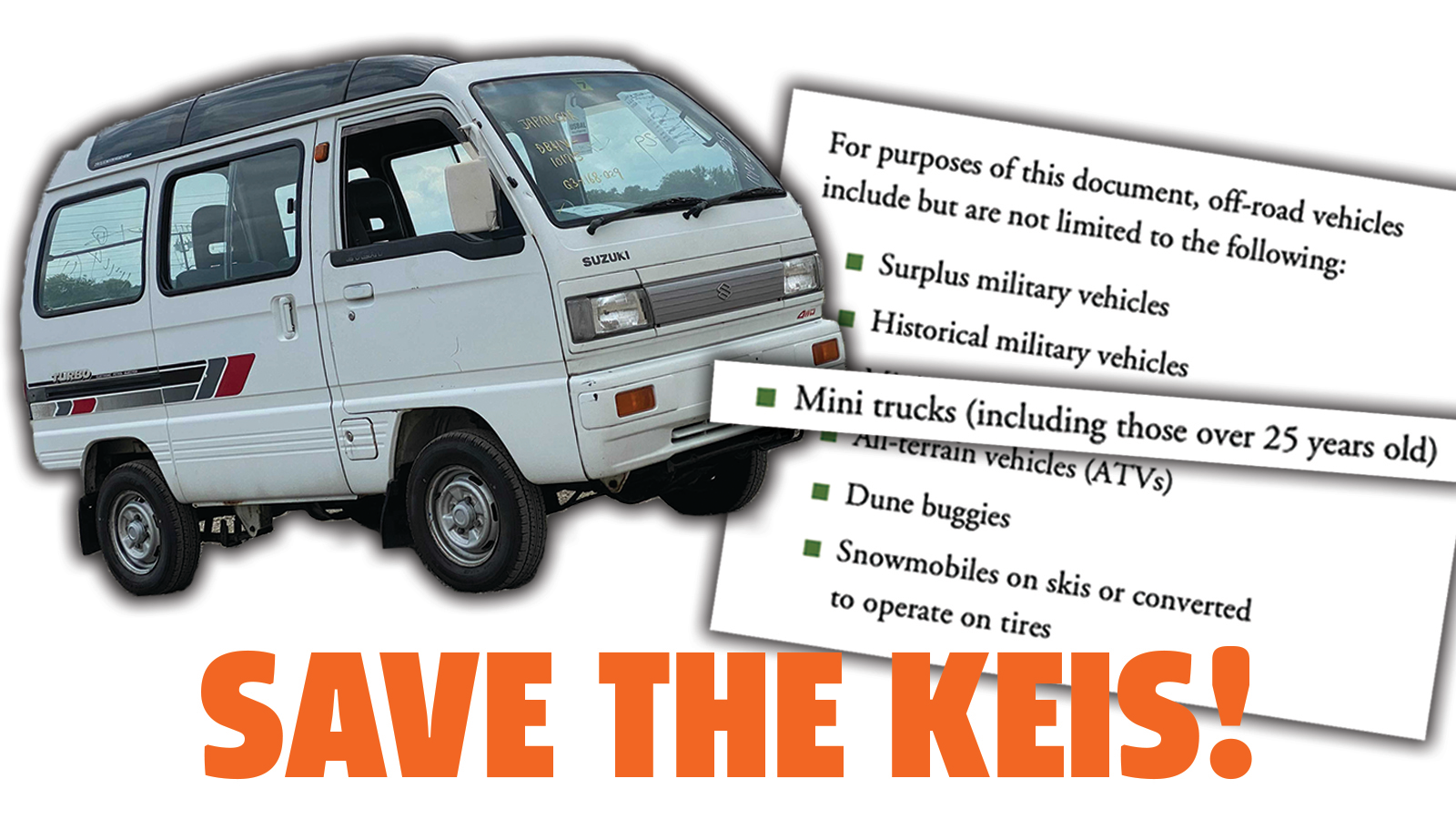More States Are Banning Legally Imported Cars And Nobody Will Say Why
The American Association of Motor Vehicle Administrators has identified just about every imported car as an "off-road vehicle."
States along the eastern seaboard are introducing owners of Japanese Domestic Market cars to a nightmare. Without warning, Maine and Rhode Island began revoking the registrations of vehicles that were legally imported and registered. Two more states, New York and Pennsylvania, are now joining in on the effort. Where did this come from and why are the states using similar language? The answer is hiding in plain sight as states are following guidance recently published by the American Association of Motor Vehicle Administrators.
The American Association of Motor Vehicle Administrators is a non-governmental non-profit lobbying organization composed of motor vehicle and law enforcement administrators, and executives from all 50 states. Canada, Mexico, the Virgin Islands and Washington D.C. get representation in the AAMVA as well. Among other things, the organization seeks standardization of laws and practices across the states regarding traffic safety, vehicle titling, and driver licensing.
While AAMVA does not have legislative power, it urges states to follow its "best practices."
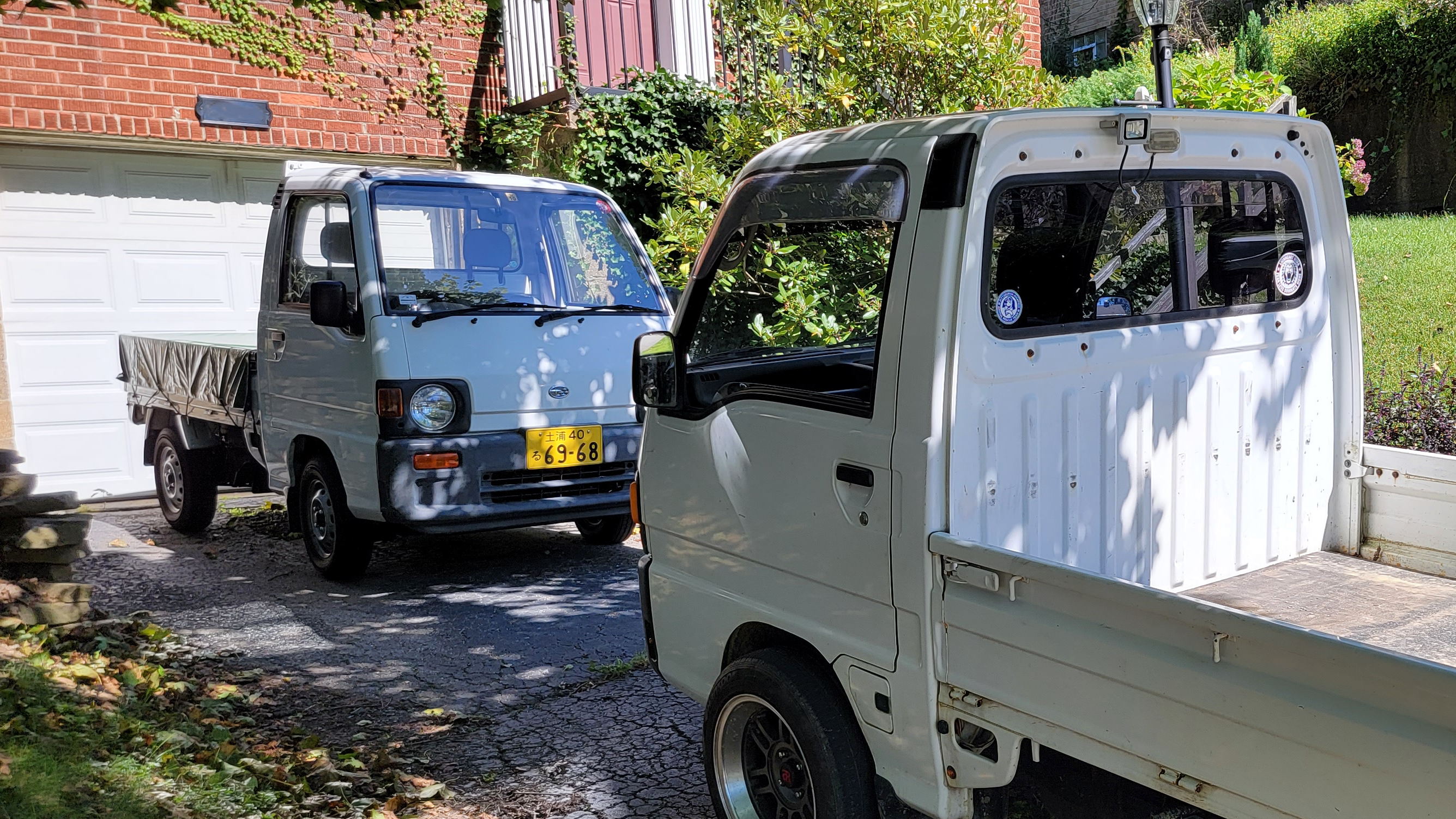
Over the past few months, Jalopnik has been contacted by countless JDM car owners. Their stories are all similar: They went through the lengthy process of importing a car to the United States and getting it cleared through Customs. The owners did everything by the book, making sure that their vehicles were old enough to be exempt from having to meet Federal Motor Vehicle Safety Standards (FMVSS). Many of them even got registrations and shiny license plates for their new rides.
But in recent months they all have received confusing and vague letters from their states demanding that they relinquish their plates to their respective department of motor vehicles.
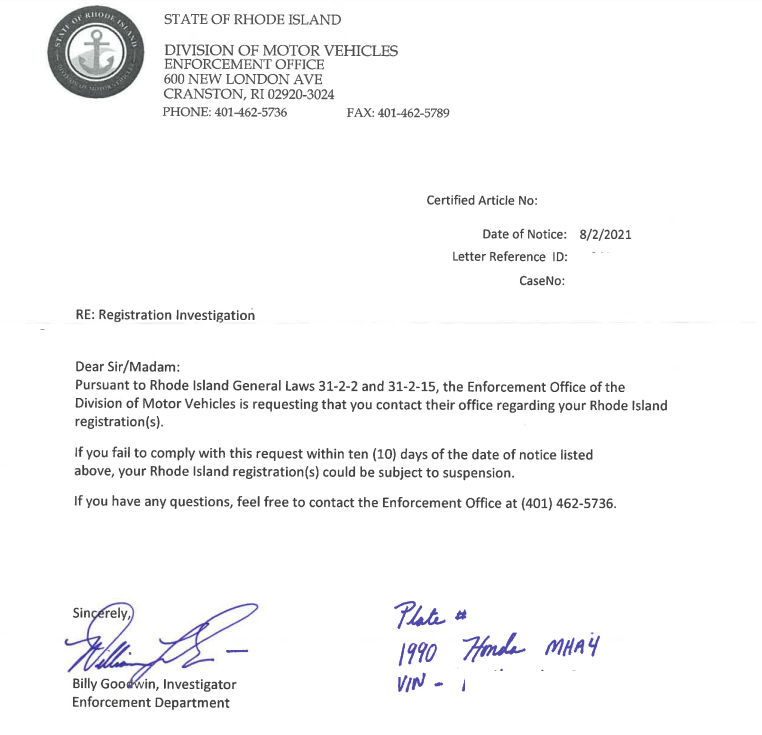
In some cases, the letters came years after owners have been happily driving their legally-registered imported cars. In other cases, owners have freshly-imported their vehicles and are now finding themselves sitting on an expensive paperweight. None of this happened with any warning.
New York and Pennsylvania have joined in and owners are starting to report issues getting and keeping imported vehicles registered.
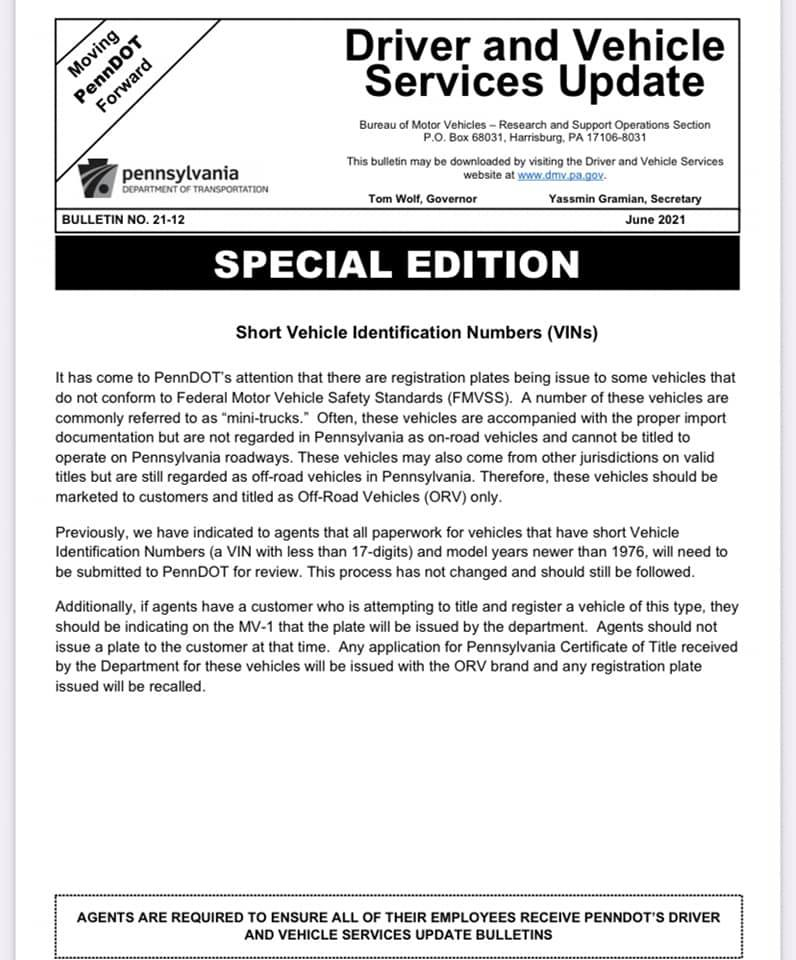
This was the story of a reader named Dave who recently contacted us. Pennsylvania blocked the titling of his recently imported Japanese keijidōsha-class mini truck. Meanwhile, his other kei truck sits next to it sporting the state's antique plates. He fears the state will be coming for that one next.
The states mention mini trucks in these letters even though a number of the vehicles involved were far larger than a kei vehicle.
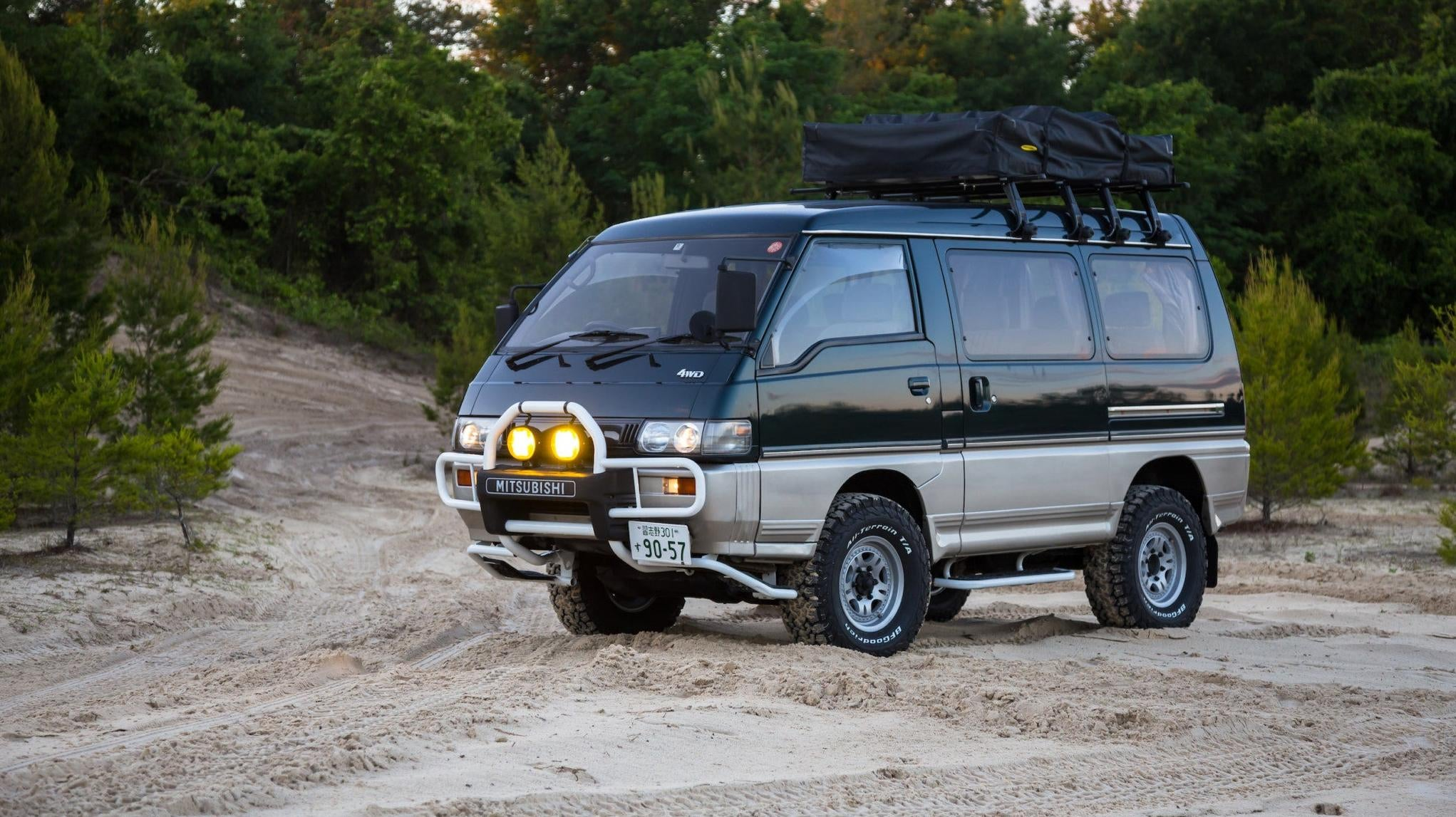
Maine's explanation for revoking the registrations is that it changed its laws to classify any vehicle not originally designed to meet FMVSS as an off-road vehicle. And those vehicles are not allowed on its roads. So even though its letters spoke of kei trucks, the reality is that every import is essentially an "off-road vehicle" per the state's definition, including cars like the Nissan Skyline and Toyota Crown.
To date, Rhode Island has not given any explanation. Instead, the state is sending letters to owners of imported vehicles telling them that their cars are "unsafe" and "unfit." Meanwhile, an internal memo was allegedly sent to state DMV offices instructing employees to not process registrations because kei cars are not built to FMVSS standards. While the public-facing explanations are different, both of these states appear to be using the same underlying reasoning.
Chuck Whoczynski, host of The Revival Motoring Podcast, received two letters: one for a Honda Acty and another for a Daihatsu Mira TR-XX Avanzato. He reached out to the state to figure out what was going on and a DMV official allegedly referenced a document from the AAMVA.
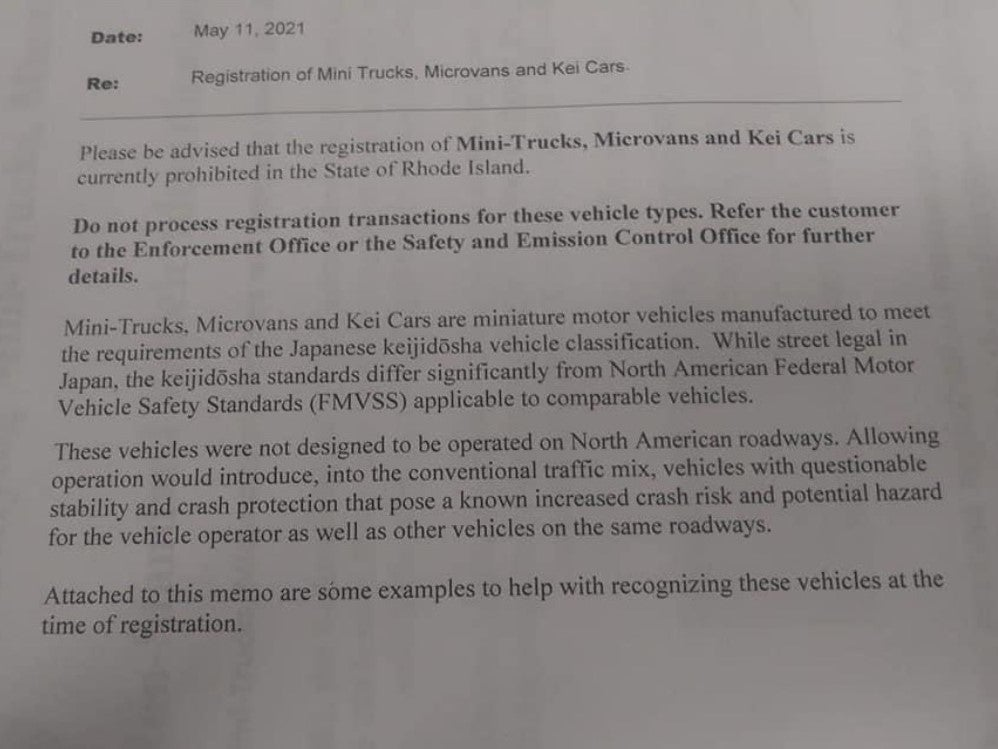
If you look closely at your own state's driving laws, you'll likely find some that are nearly word-for-word what the AAMVA recommends states to do. AAMVA records show that mini trucks have been a target for the organization for a long time.
Japanese and Chinese mini trucks flooded the market in the 2000s and the states didn't really know how to handle them. Some states created their own patchwork of regulation, but there was nothing on a national level. The question of how to handle mini trucks popped up on AAMVA's radar and the organization sought to find an answer.
In February 2010, representatives from a number of states and Canadian provinces met in Orlando, Florida with the purpose of developing best practices for handling the influx of mini truck imports. It was one of many meetings on the subject.
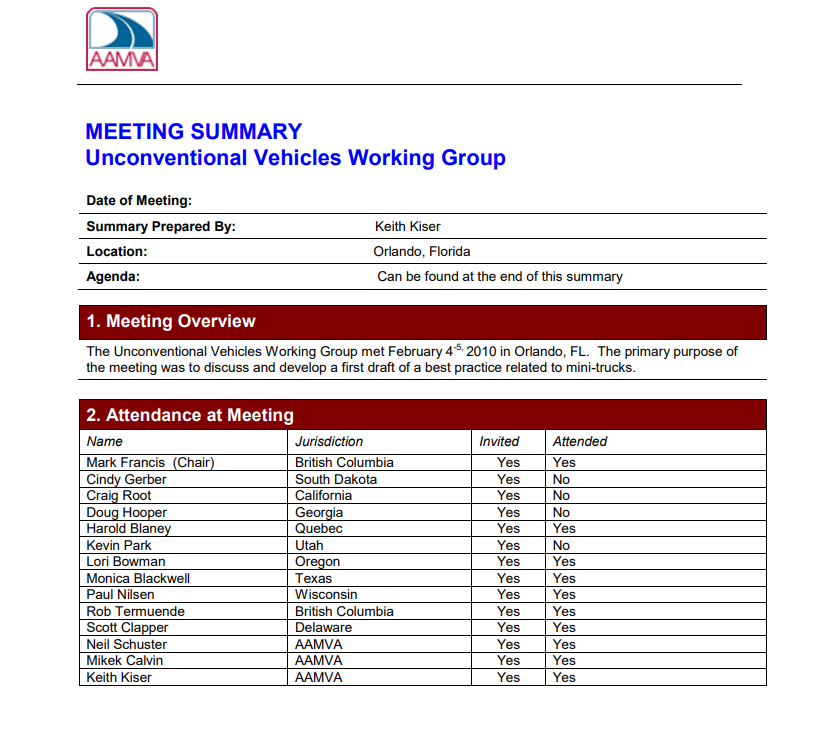
Soon after, the Insurance Institute for Highway Safety published an opinion that low-speed-vehicles and mini trucks are unsafe and should not be allowed on public roads. The opinion noted a 2007 trend of states allowing mini trucks on regular roads gaining traction.
It focused on mini trucks with a governed 25 mph top speed, not trucks older than 25 years old imported without a limiter.
This push culminated in a 2011 document from the AAMVA titled Best Practice Regarding Registration and Titling of Mini-Trucks. It's widely cited as the motivation behind the states' behavior against imports. And it features some incredible lines of text:
By allowing on-road operation of used mini-trucks, Canada and the U.S. are accepting another nation's cast-offs—vehicles that no longer meet the exporting country's vehicle safety or emissions standards. Increasing the supply of older model vehicles in North America undermines government and industry efforts to improve vehicle safety and reduce vehicle emissions, as these efforts are largely dependent on fleet turnover. This risk can be reduced by placing restrictions on the use of these non-conforming vehicles in Canadian and U.S. jurisdictions.
But it doesn't explain a number of problems. Why are the states canceling registrations when the document says that existing vehicles can be grandfathered in? Why are vehicles far outside of the kei class being targeted?
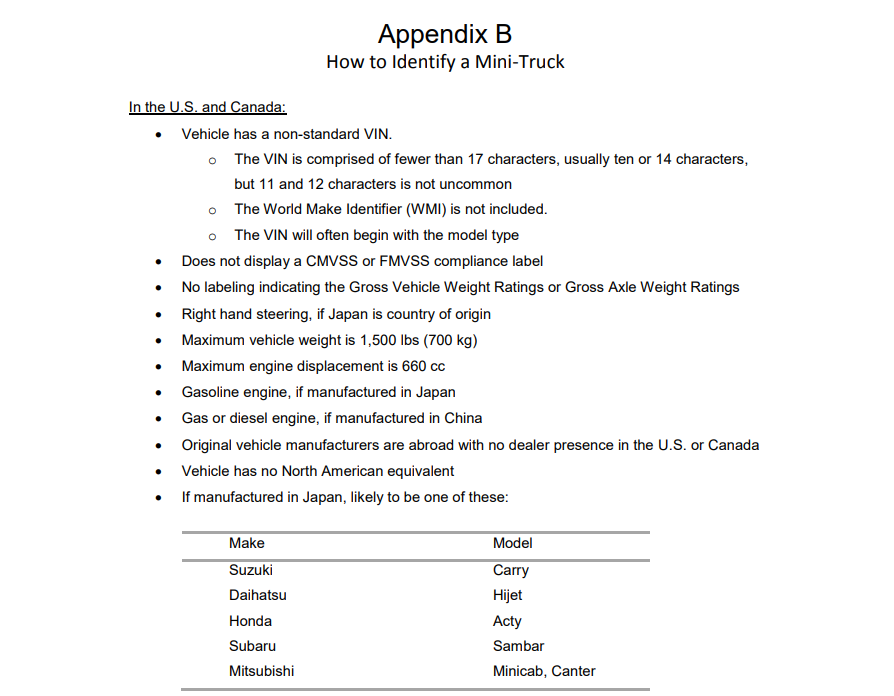
The states aren't just following that 2011 document, but also a fresher 2021 document with more aggressive recommended practices.
In 2021, Maine's BMV, with the help of the DMVs of Georgia, Colorado and South Dakota published Regulation of Off-Road Vehicles: Best Practices, which clamps down on imported vehicles in a weird way.
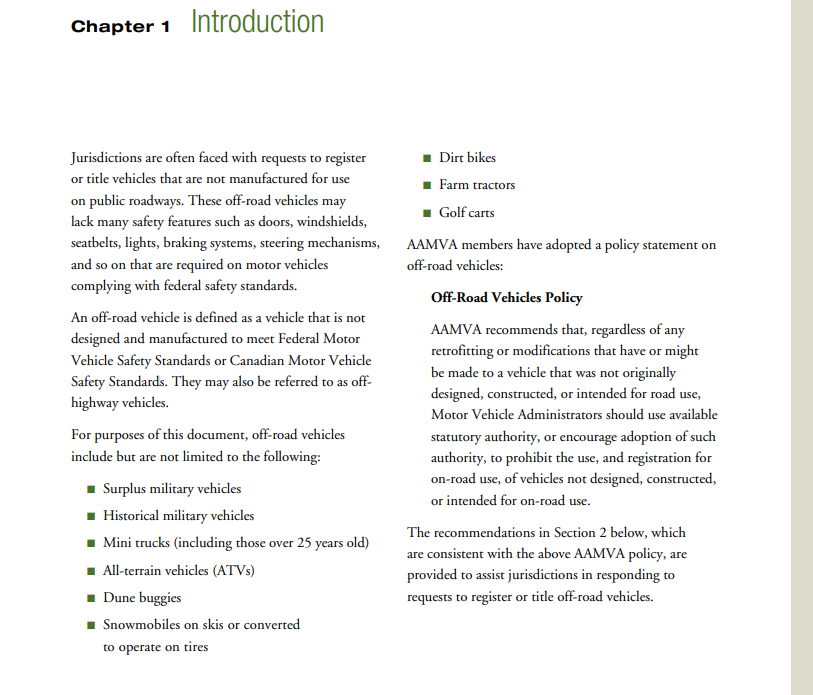
Older documents circulated to AAMVA members deferred to the National Highway Traffic Safety Administration. The NHTSA classifies an off-road vehicle as a vehicle not designed for on-road use that does not meet FMVSS standards. However, the NHTSA also notes that imports that are 25 years and older are exempt from meeting said standards.
The 2021 AAMVA document takes the definition of an off-road vehicle a couple of important steps further. AAMVA simplifies the definition before specifically calling out mini trucks that are 25 years or older as not being exempt from the organization's definition.
An off-road vehicle is defined as a vehicle that is not designed and manufactured to meet Federal Motor Vehicle Safety Standards or Canadian Motor Vehicle Safety Standards. They may also be referred to as off-highway vehicles.
Maine changed its laws to match this new definition right before canceling the registrations of all sorts of imported cars.
This means that based on how these states are interpreting this language, just about anything you'd want to import from a Renault Twingo to Jason's Nissan Pao to my Honda Beat are now "off-road vehicles." The wording is vague enough that technically, domestic cars that predate FMVSS shouldn't be legal for road use, either.
The 2011 document suggested that agencies not register or allow mini trucks on public roads, but left the option to grandfather in vehicles already with valid registrations. The 2021 version goes harder, adding a couple of caveats to the grandfathering in of currently-registered vehicles while also suggesting that agencies cancel the registrations of those vehicles. See the image below:
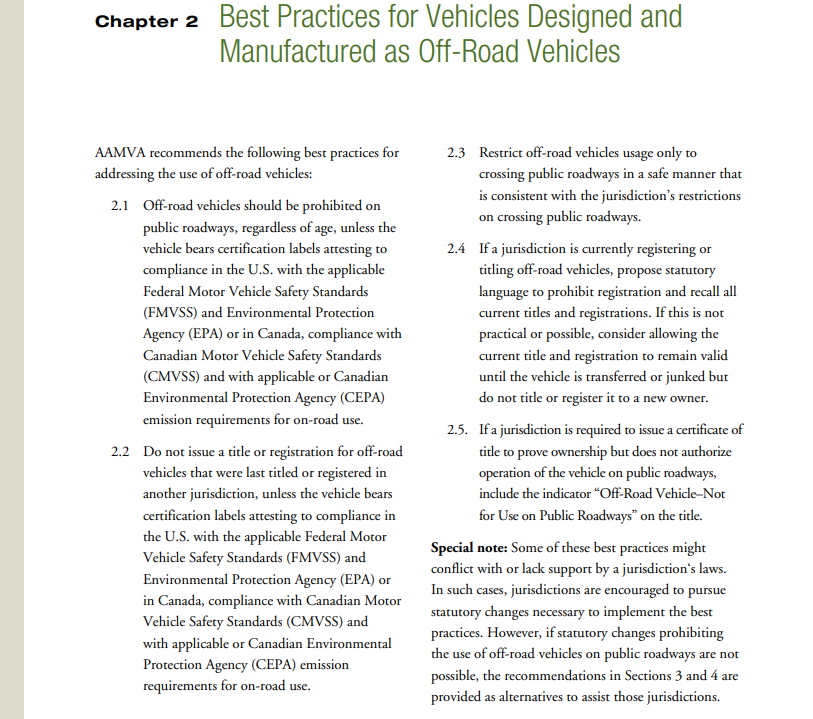
Yep, this means that should the state choose to allow an owner to continue driving their mini truck, they can never sell it to a new owner. Basically, the recommendation is designed so that if the state can't get the truck off of the road right now, it will eventually.
If you think that this can't be legal, you aren't alone. Even the AAMVA knows that what it's telling the states to do may run against existing laws. For that, the AAMVA is telling the states to simply change their laws until this is legal.
Special note: Some of these best practices might conflict with or lack support by a jurisdiction's laws. In such cases, jurisdictions are encouraged to pursue statutory changes necessary to implement the best practices. However, if statutory changes prohibiting the use of off-road vehicles on public roadways are not possible, the recommendations in Sections 3 and 4 are provided as alternatives to assist those jurisdictions.
Sections 3 and 4 allow the use of a mini truck vehicle on the road, but under very limited circumstances like roads with speeds no greater than 35 mph and branding the titles of imports as "Off-Road Vehicle." An imported car could be difficult to sell to a person in a state that does allow imported cars on its roads with such a title brand.
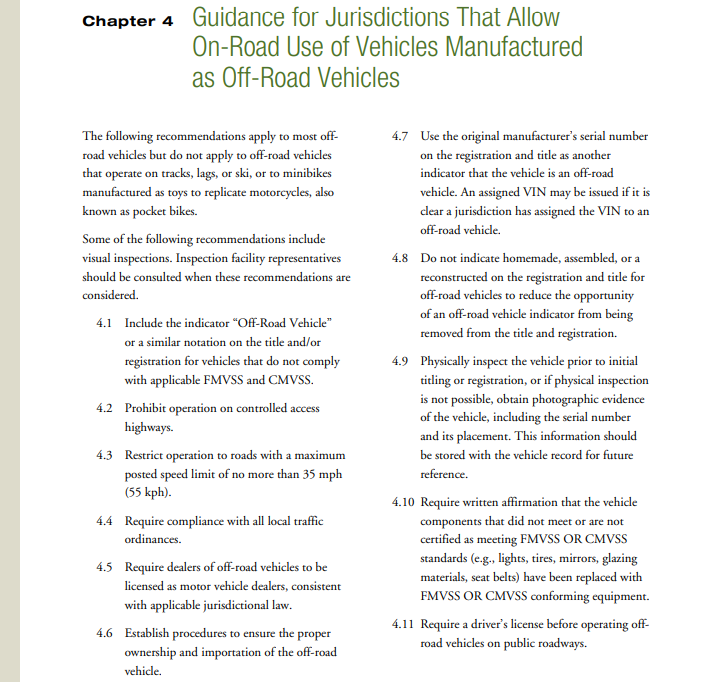
The document also targets golf carts as off-road vehicles, but gives them special considerations. One of them is allowing the operation of golf carts on public roads so long as local ordinances say so. Such a consideration isn't given to the localities that allow the on-road usage of imported vehicles.
New York, Pennsylvania, Maine and Rhode Island have elected not to allow mini trucks to be grandfathered in, instead choosing the recommended practice of recalling all registrations for an outright ban.
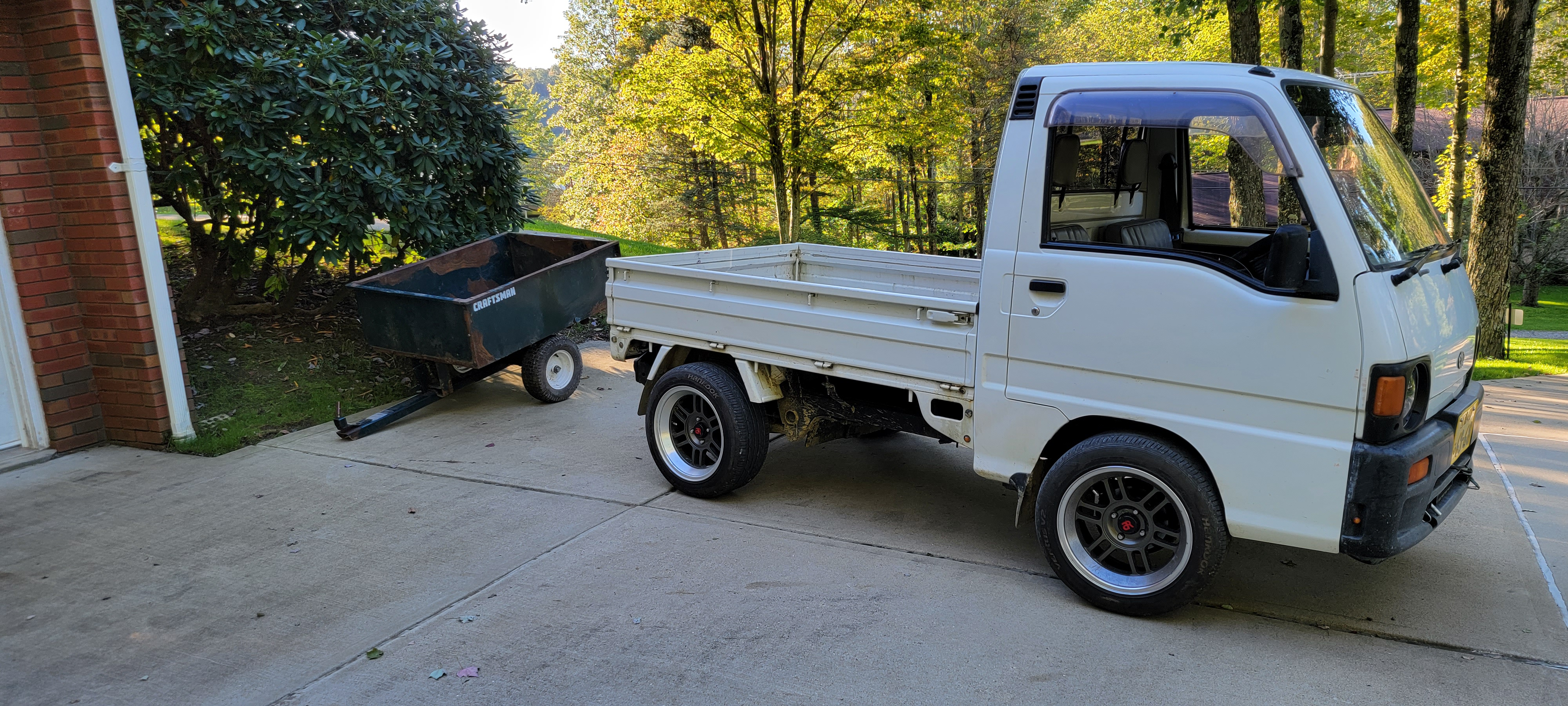
While Maine BMV Registration Section Supervisor Nikki Bachelder is in part responsible for the 2021 document, it should also be noted that Walter Craddock, Rhode Island Division of Motor Vehicles administrator, also serves on the AAMVA's board of directors.
Rhode Island isn't answering questions. Autoblog took matters into its own hands, filing an Access to Public Records Act request. As a result, it found the laws the state is using to deny registrations. The state points to the AAMVA best practices. But instead of changing its laws, it's trying to shoehorn two existing laws to fit. General Laws § 31-3-5 says that a vehicle can be denied registration because it is "mechanically unfit or unsafe" for highways. General Laws § 31-38-1 state that no person should operate a vehicle on a highway unless it is in good working order and in safe mechanical condition.
These laws have been on Rhode Island's books for years and owners of imported vehicles were able to register vehicles despite them, until now.
Lawsuits have been filed against these states questioning the legality of the states canceling registrations. Lawyers familiar with the matter have told Jalopnik that these actions are probably illegal. At the moment, Rhode Island appears to have temporarily stopped canceling registrations while litigation is ongoing.
AAMVA's alleged motivation behind this is safety. The 2011 mini truck document cites two studies:
A 2007 Insurance Corporation of British Columbia study found that RHD vehicles have a 44% higher risk of crashing over a four-year period than comparable LHD vehicles. The average time to first culpable crash for RHD vehicles was 68% sooner than for LHD vehicles. The higher crash rate was attributed to the reduced direct field of view for drivers of RHD vehicles in a right-lane traffic environment.
A 2009 Quebec study found that RHD passenger cars have a 32% higher risk of crashing than comparable LHD passenger cars.
The 2021 document forgoes the explanation of why these vehicles are unsafe and just states that mini trucks don't meet FMVSS standards.
To answer the question of why: The states are simply following the guidance of the AAMVA. This isn't new as states often do draw on the AAMVA for changes to their driving laws. The difference now is that the AAMVA has become a bit more aggressive against mini trucks. The best practices document against mini trucks can even be found on current versions of the AAMVA the Week in Review newsletter, viewable by AAMVA members.
Unfortunately, this paints a bleak future for JDM enthusiasts as member states are encouraged to implement AAMVA's recommendations.
Some questions remain. It was only until recently when the AAMVA changed the definition of an off-road vehicle to include practically any import. Why the recent change? Why are states canceling registrations instead of grandfathering in vehicles? If safety is a concern, why is it just imported vehicles seemingly being targeted?
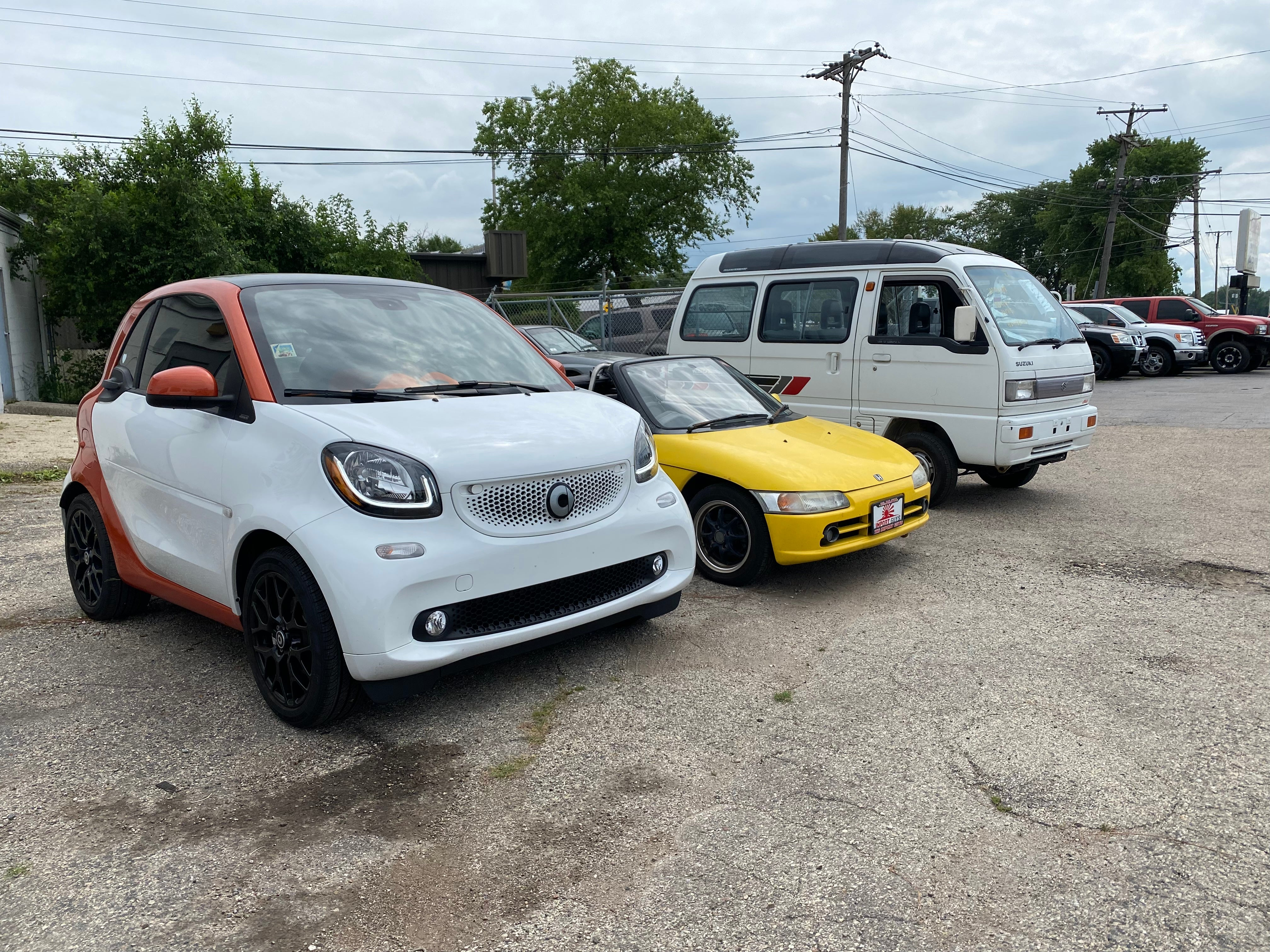
I've reached out for comment to the Maine Bureau of Motor Vehicles, Paul Grimaldi, spokesman for the Rhode Island Department of Revenue, as well as Patrice Aasmo, Regional Director of Regions 1 and 2 of AAMVA. I've also contacted DMV officials in a number of states including Pennsylvania and New York.
Grimaldi responded and gave this answer for a question if Rhode Island expects other AAMVA member states to follow suit:
We wouldn't be able to comment on what regulations other states might adopt. I will get back to you should we want to comment beyond that.
It should be noted that Rhode Island did not answer a question we asked in September regarding the validity of the aforementioned alleged leaked memo. The other representatives and officials have not responded at time of writing.
